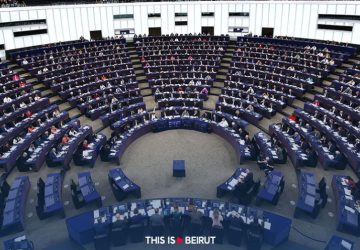The European Union on Sunday offered major financial support to crisis-hit Tunisia, to boost its economy and reduce the flow of irregular migrants across the Mediterranean Sea.
The EU is ready to offer Tunisia a 900 million euro package plus 150 million euros in immediate support, European Commission head Ursula von der Leyen said on a joint visit with the Italian and Dutch prime ministers.
The North African country, highly indebted and in talks for an IMF bailout loan, is a gateway for migrants and asylum-seekers attempting the dangerous voyages to Europe.
“We both have a vast interest in breaking the cynical business model of smugglers and traffickers,” said von der Leyen. “It is horrible to see how they deliberately risk human lives for profit.”
She said other EU projects would help Tunisia export clean renewable energy to the bloc, and deliver high speed broadband, all with the aim of creating “jobs and boost growth here in Tunisia”.
Von der Leyen, after talks with President Kais Saied, said she hoped an EU-Tunisia agreement could be signed at the next European summit later this month.
Italy’s far-right premier, Meloni, was on her second Tunisia visit within a week, after meeting Saied on Tuesday. Tunisia lies less than 150 kilometres (90 miles) from the Italian island of Lampedusa, and has long been a stepping stone for migrants, mostly from sub-Saharan African countries, seeking a better life in Europe.
The country reached an in-principle deal last year for an IMF bailout loan of around $2 billion. But talks have since stalled over the reforms demanded by the fund, especially on state-run enterprises and state subsidies on basic products.
Saied, who has seized almost total power since a dramatic July 2021 move against parliament, on Tuesday again slammed what he has termed the “diktats” of the Washington-based IMF.
Saied on Saturday also said he rejected turning Tunisia into Europe’s “border guard”, speaking in Sfax, a coastal city in a region from where many migrants leave.
The Tunisian Forum for Economic and Social Rights denounced the visit by the three European leaders as an attempt to “blackmail” Tunisia with an offer of financial support in return for stepped up border vigilance
Maïssa Ben Fares, with AFP





